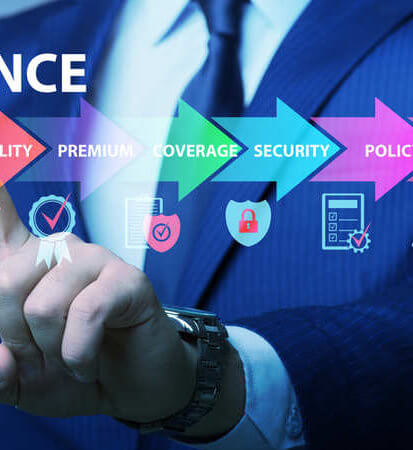Tips
Top Cybersecurity Practices for Property Management Platforms

Property management platforms help landlords and property managers keep track of rent, tenants, maintenance, and more. But with all that information stored online, how do we keep it safe?
Cybersecurity is key. These platforms often store sensitive data like payment details, personal identification, and legal documents. Hackers and online threats are always looking for ways to steal or damage this information.
Good cybersecurity practices can protect the platform, the business, and the people who use it. This blog will walk through the top strategies to keep your property management system secure and running smoothly.
Use Strong Passwords and Multi-Factor Authentication (MFA)
One of the easiest and most effective ways to secure a platform is by creating strong passwords. A secure password should include a combination of uppercase and lowercase letters, numbers, and special characters. Stay away from common choices like “1234” or “password.” It’s also important to update your passwords regularly and keep them private.
In addition to strong passwords, using multi-factor authentication (MFA) adds another layer of safety. MFA requires users to enter a code from their phone or email after typing in their password. This makes it harder for hackers to get in, even if they steal a password.
Encourage all platform users, owners, tenants, and staff to use MFA. Platforms should enable password rules and alerts for unusual login activity. Although it may seem like an extra step, these security measures are necessary. They reduce data breach risks and keep your platform protected 24/7.
Keep Software and Systems Updated Regularly
Keeping all systems and software up to date is a major part of cybersecurity. Hackers often find ways to break into older versions of software. Updates usually come with patches that fix these weak spots. That’s why installing updates as soon as they become available is so important.
This includes updates to the platform itself, your devices, operating systems, and even your antivirus software. Property management platforms should also check for updates on any third-party tools they use, such as payment processors or email services.
Set a regular schedule to check for and install updates. In some cases, platforms can turn on automatic updates to make the process even easier. Staying current helps protect data and prevents issues that could stop the platform from working properly.
If you’ve recently gone through cloud migration in Columbus, Ohio, or another city, updates should be a top priority to ensure your new system stays protected in its cloud environment.
Train Staff and Users on Cybersecurity Awareness
Many cyberattacks succeed because someone makes a simple mistake, like clicking on a bad link. That’s why training your team and users is so important. Everyone who uses the platform should know the basics of how to stay safe online.
This training should include tips on spotting phishing emails, not opening files from unknown senders, and knowing when something doesn’t look right. For example, an email that seems to come from the platform but has spelling errors or strange links might be a scam.
Make training easy to follow and repeat it often, at least once or twice a year. Consider short video lessons, simple quizzes, or checklists. Even tenants can benefit from a basic guide on keeping their logins secure.
Better cybersecurity awareness reduces vulnerability to scams, preventing data breaches and protecting companies and users.
Use Secure and Encrypted Connections
When data moves between users and the platform, it should be protected. Encryption is a way to do that. It changes the data into a secret code that only the right system can read. This is helpful for keeping personal information, like credit card numbers and addresses, safe from hackers.
Look for property management platforms that use HTTPS in their web addresses. The “S” stands for secure, and it means the site uses encryption. Also, check if the platform uses Secure Socket Layer (SSL) or Transport Layer Security (TLS) to protect data during transfers.
Wi-Fi networks for accessing the platform must be secure. Avoid public or shared networks unless using a Virtual Private Network (VPN), which provides additional encryption to protect your activity.
Backup Data Often and Use Reliable Storage
No system is perfect. Even with strong security, something could still go wrong, like a hardware failure or a cyberattack. That’s why regular data backups are essential. A backup is a copy of your data that can be used to restore the system if it gets damaged or deleted.
Set up automatic backups to run every day, if possible. Store these backups in secure, off-site locations or cloud-based storage. Make sure the storage you choose is trusted, encrypted, and regularly tested.
It’s also wise to keep more than one backup copy. You could use both local backups and cloud backups to be extra safe. If you lose access to one, the other can still save your data.
Test your backups now and then to make sure they work. Don’t wait for an emergency to find out that your backup isn’t usable. A good backup plan can keep your operations running, even after unexpected problems.
Limit Access Based on Roles and Responsibilities
Not everyone needs access to all parts of a property management platform. Giving too many people full access can open the door to mistakes or misuse. It’s safer to give users access only to what they need for their job.
This is called role-based access control. For example, a maintenance worker might only need access to work orders, while a property manager needs access to billing and tenant records. By limiting access, you reduce the risk of human error and cyberattacks.
Set clear rules for what each user role can see and do on the platform. Review these rules often, especially when someone joins or leaves your team. Also, be sure to remove or update access right away if someone no longer works with you.
Role-based access keeps your platform more secure and easier to manage. It protects sensitive data and helps you stay in control of who can do what on the system.
Start Implementing These Cybersecurity Practices for Property Management Platforms Today
Cybersecurity may seem like a big task, but it becomes manageable when broken into steps. By using strong passwords, updating software, training users, encrypting data, backing up files, and limiting access, property management platforms can protect the people and information they serve.
These practices don’t just prevent cyberattacks, they also build trust with tenants and property owners. In a world where so much is online, security is not optional; it’s a must-have for smooth and safe operations.
To explore more helpful topics, check out other articles on our blog!




